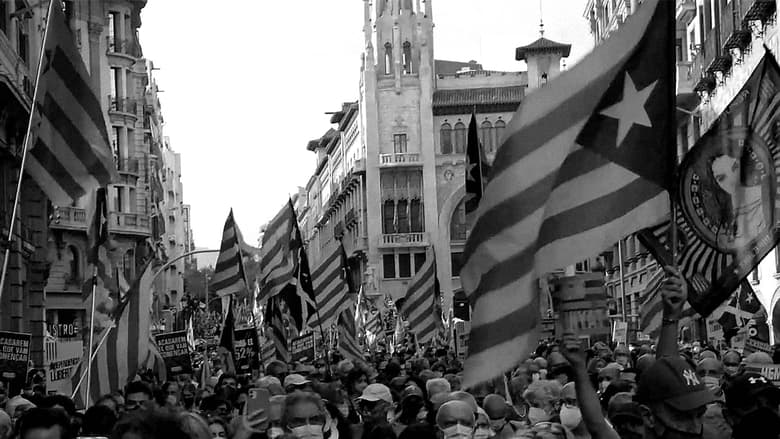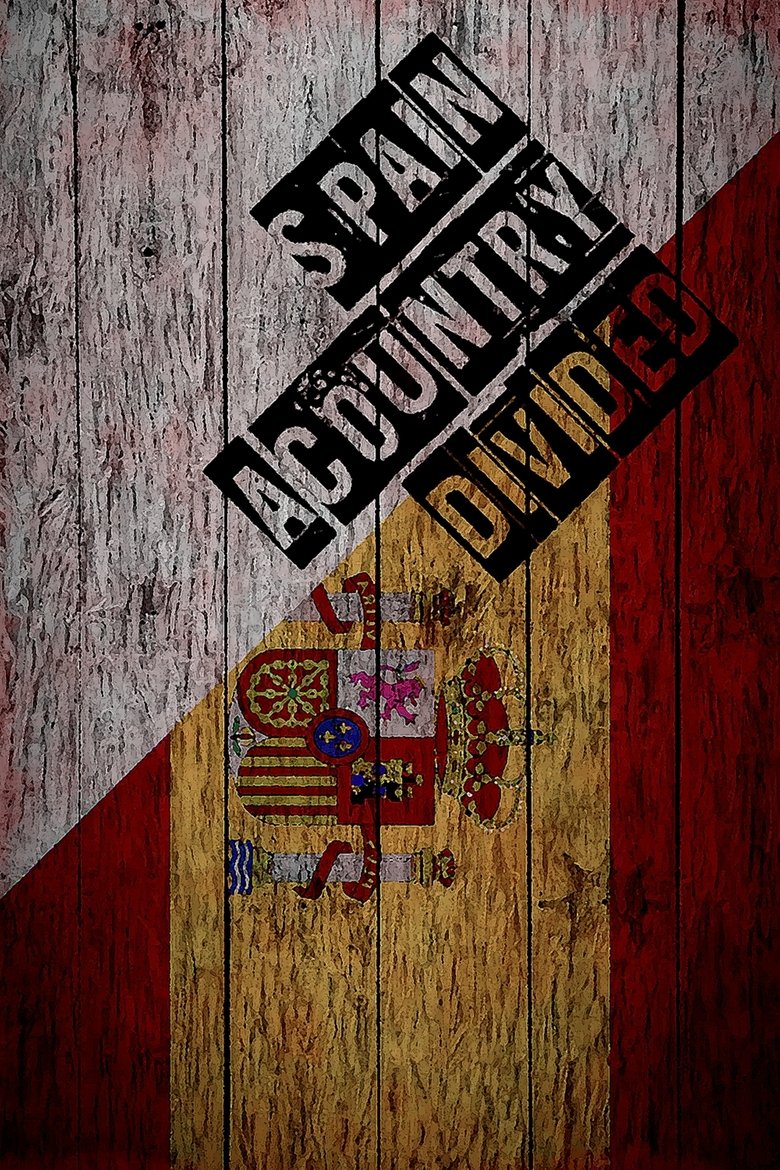

Spain: A Country Divided
Genres
Overview
Obsessively referring to the traumas and wounds that the Spanish civil war (1936-39) and Franco's dictatorship (1939-75) caused in their day no longer serves to explain the impassable abyss of incomprehension and hatred that the abject policies and radical positions adopted by both the right and the left in recent decades have opened up before the citizens of a country that is barely known beyond hackneyed cultural clichés.
Details
Budget
$0
Revenue
$0
Runtime
53 min
Release Date
2022-06-28
Status
Released
Original Language
Spanish
Vote Count
3
Vote Average
3
Ángel Rodríguez
Self
Eugenio Rodríguez
Self
Juan Manuel Guijo
Self - Anthropologist
Fernando Serulla
Self - Forensic Pathologist
Isabel San Sebastián
Self - Journalist
Carmen Arnedo
Self - Social Activist
Mercedes Revuelta
Self - Social Activist
Ricardo Benítez
Self
Natalia Biscari
Self
Guillermo Galán
Self
Lluïsa Erill
Self - Catalan Teacher
Cristina Almeida
Self - Lawyer
Iñaki Gabilondo
Self - Journalist
Manuel Andrino
Self - FE Leader
Francisco Franco
Self - Politician (archive footage)
Pablo Iglesias
Self - Politician (archive footage)
Santiago Abascal
Self - Politician (archive footage)
7.0
Más allá de la alambrada: la memoria del horror
2005-11-12 | es
7.3
All the Beauty and the Bloodshed
The life of internationally renowned artist and activist Nan Goldin is told through her slideshows, intimate interviews, ground-breaking photography, and rare footage of her personal fight to hold the Sackler family accountable for the overdose crisis.
2022-11-23 | en
0.0
Unbändiges Spanien
Documentary film about the Spanish Civil War.
1962-10-19 | de
5.0
Lágrimas rojas
2006-12-06 | es
7.0
¡Votad, votad, malditos!
On June 14, 1977, the eve of the first democratic elections after Franco's regime, Llorenç Soler and his crew go out into the street and ask passers-by which party they are going to vote for.
1977-07-01 | es
5.6
Steal This Film
Steal This Film focuses on Pirate Bay founders Gottfrid Svartholm, Fredrik Neij and Peter Sunde, prominent members of the Swedish filesharing community. The makers claimed that 'Old Media' documentary crews couldn't understand the internet culture that filesharers took part in, and that they saw peer-to-peer organization as a threat to their livelihoods. Because of that, they were determined to accurately represent the filesharing community from within. Notably, Steal This Film was released and distributed, free of charge, through the same filesharing networks that the film documents.
2006-08-21 | en
6.0
Històries de Bruguera
The history of Bruguera, the most important comic publisher in Spain between the 1940s and the 1980s. How the characters created by great writers and pencilers became Spanish archetypes and how their strips persist nowadays as a portrait of Spain and its people. The daily life of the creators and the founding family, the Brugueras. The world in which hundreds of vivid colorful paper beings lived and still live, in the memory of millions, in the smile of everyone.
2012-04-20 | es
7.0
The Builders of the Alhambra
Kingdom of Granada, al-Andalus, 14th century. After recognizing that his land, always under siege, is hopelessly doomed to be conquered, Sultan Yusuf I undertakes the construction of a magnificent fortress with the purpose of turning it into the landmark of his civilization and his history, a glorious monument that will survive the oblivion of the coming centuries: the Alhambra.
2022-11-24 | es
0.0
Redwood Summer
A recruitment video created by Earth First! in 1990 to promote their Redwood Summer initiative.
1990-06-01 | en
8.0
Rioja: The Land of a Thousand Wines
By telling the human stories behind the entire value chain that gives life to the Spanish wine with the greatest international projection, ‘Rioja, Land of the Thousand Wines’ portrays a currently blooming wine region underpinned by the talent and the work of the new generations of winemakers that operate side by side with the region’s historic wineries. The film puts the focus on the match between territory and product, wisdom and tradition, and lays a bridge between the origins and the future of Rioja. An immersion into a fascinating world that, through captivating cinematography and careful editing, attempts to find the keys to understanding what Rioja wine is and what makes it so special.
2023-11-10 | es
8.0
Aquí y allí: journal d'une exilée
While cleaning the apartment of Lucía, her deceased grandmother, Anna finds a notebook where she discovers the story of a secretly kept love, lived during the turbulent years of the Second Republic and the Spanish Civil War.
2020-12-01 | es
1.0
LaDonna Harris: Indian 101
A documentary film about Comanche activist LaDonna Harris, who led an extensive life of Native political and social activism, and is now passing on her traditional cultural and leadership values to a new generation of emerging Indigenous leaders.
2014-03-29 | en
9.0
Citizen: The Political Life of Allard K. Lowenstein
Chronicles the life of Allard K. Lowenstein, the political activist and Congressman known for his tireless anti-war and civil rights activism.
1983-05-31 | en
6.7
Olympia: Part Two – Festival of Beauty
Commissioned to make a propaganda film about the 1936 Olympic Games in Germany, director Leni Riefenstahl created a celebration of the human form. Where the two-part epic's first half, Festival of the Nations, focused on the international aspects of the 1936 Olympic Games held in Berlin, part two, The Festival of Beauty, concentrates on individual athletes such as equestrians, gymnasts, and swimmers, climaxing with American Glenn Morris' performance in the decathalon and the games' majestic closing ceremonies.
1938-06-02 | de
7.8
Coup 53
Tehran, Iran, August 19, 1953. A group of Iranian conspirators who, with the approval of the deposed tyrant Mohammad Reza Pahlavi, have conspired with agents of the British MI6 and the US CIA, manage to put an end to the democratic government led by Mohammad Mosaddegh, a dramatic event that will begin the tragic era of coups d'état that, orchestrated by the CIA, will take place, over the following decades, in dozens of countries around the world.
2019-09-01 | en
0.0
Nazi Supergrass
This documentary explores the life and times of Russell Dean Willey, a neo-Nazi supergrass, in order to explain the presence of Jack Van Tongeren's Australian Nationalists Movement in Australia, and its spread, especially in difficult economic times.
1993-07-21 | en
7.0
The Yes Men
A comic, biting and revelatory documentary following a small group of prankster activists as they gain worldwide notoriety for impersonating the World Trade Organization (WTO) on television and at business conferences around the world.
2003-09-07 | en
7.6
The Corporation
Since the late 18th century American legal decision that the business corporation organizational model is legally a person, it has become a dominant economic, political and social force around the globe. This film takes an in-depth psychological examination of the organization model through various case studies. What the study illustrates is that in the its behaviour, this type of "person" typically acts like a dangerously destructive psychopath without conscience. Furthermore, we see the profound threat this psychopath has for our world and our future, but also how the people with courage, intelligence and determination can do to stop it.
2003-09-10 | en
0.0
Gesto
The history of the citizens' movement that for thirty years worked hard to overcome fear, fight hatred and eradicate the violence exercised by the savage terrorist gang ETA, both in the Basque Country and in the rest of Spain.
2022-11-12 | es
3.0
¿Por qué morir en Madrid?
1966-05-02 | es